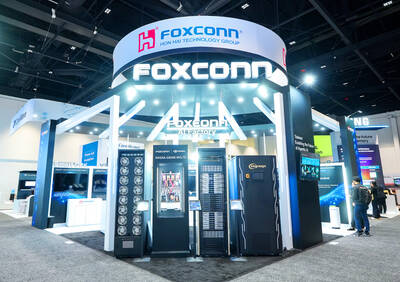Japanese architect Fumihiko Maki has been chosen by a Taiwan consortium to design the Taipei Twin Tower, a new landmark for the capital city scheduled to be launched in 2011, a city official said yesterday.
Maki, 77, has been named by the China Engineering Consultants Inc (CECI,
"The Taipei Railway Station will be rebuilt so that it can link up with the high-speed railway and the Mass Rapid Transit (MRT) line linking the Taipei Railway Station and the Chiang Kai-shek International Airport," Lee said.
"In 2011, foreigners arriving at the CKS airport will take the MRT line to the Taipei Railway Station, and see the Taipei Twin Tower when they come out of the Taipei Railway Station," he said.
The Taipei Twin Tower will be two matchbox-shaped commercial complexes -- one 350m tall with 86 stories, and the other 256m tall with 64 stories.
They will stand west of the new Taipei Railway Station which Maki will also design. Maki has called his design the "Gate of Taipei."
On completion, the Taipei Twin Tower will become Taiwan's third-tallest building after the 508m Taipei 101 and the 378m Tuntex Sky Tower in Kaohsiung.
Taipei 101 is the nickname for the Taipei International Financial Center because it has 101 stories. Currently, it is the world's tallest building.
Maki is the winner of the 1993 Pritzker Architecture Prize and has participated in designing the Free Tower which will replace the New York World Trade Center destroyed in the September 11, 2001 terrorist attack.

Anna Bhobho, a 31-year-old housewife from rural Zimbabwe, was once a silent observer in her home, excluded from financial and family decisionmaking in the deeply patriarchal society. Today, she is a driver of change in her village, thanks to an electric tricycle she owns. In many parts of rural sub-Saharan Africa, women have long been excluded from mainstream economic activities such as operating public transportation. However, three-wheelers powered by green energy are reversing that trend, offering financial opportunities and a newfound sense of importance. “My husband now looks up to me to take care of a large chunk of expenses,

SECTOR LEADER: TSMC can increase capacity by as much as 20 percent or more in the advanced node part of the foundry market by 2030, an analyst said Taiwan Semiconductor Manufacturing Co (TSMC, 台積電) is expected to lead its peers in the advanced 2-nanometer process technology, despite competition from Samsung Electronics Co and Intel Corp, TrendForce Corp analyst Joanne Chiao (喬安) said. TSMC’s sophisticated products and its large production scale are expected to allow the company to continue dominating the global 2-nanometer process market this year, Chiao said. The world’s largest contract chipmaker is scheduled to begin mass production of chips made on the 2-nanometer process in its Hsinchu fab in the second half of this year. It would also hold a ceremony on Monday next week to

State-run CPC Corp, Taiwan (CPC, 台灣中油) yesterday signed a letter of intent with Alaska Gasline Development Corp (AGDC), expressing an interest to buy liquefied natural gas (LNG) and invest in the latter’s Alaska LNG project, the Ministry of Economic Affairs said in a statement. Under the agreement, CPC is to participate in the project’s upstream gas investment to secure stable energy resources for Taiwan, the ministry said. The Alaska LNG project is jointly promoted by AGDC and major developer Glenfarne Group LLC, as Alaska plans to export up to 20 million tonnes of LNG annually from 2031. It involves constructing an 1,290km

NEXT GENERATION: The company also showcased automated machines, including a nursing robot called Nurabot, which is to enter service at a Taichung hospital this year Hon Hai Precision Industry Co (鴻海精密) expects server revenue to exceed its iPhone revenue within two years, with the possibility of achieving this goal as early as this year, chairman Young Liu (劉揚偉) said on Tuesday at Nvidia Corp’s annual technology conference in San Jose, California. AI would be the primary focus this year for the company, also known as Foxconn Technology Group (富士康科技集團), as rapidly advancing AI applications are driving up demand for AI servers, Liu said. The production and shipment of Nvidia’s GB200 chips and the anticipated launch of GB300 chips in the second half of the year would propel